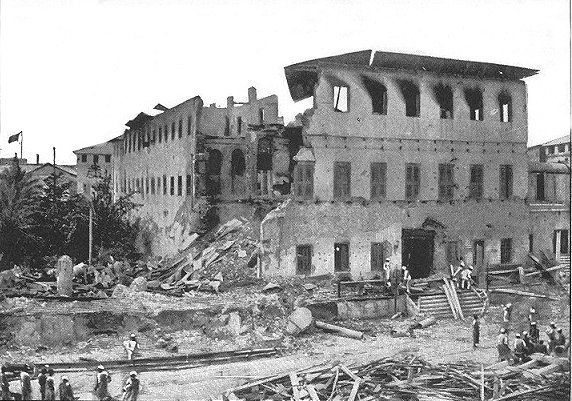In a number of wars in history it probably took more time to assemble the troops or even to deliver an official “proclamation of war” than it took to actually fight them. If we had to determine the top three contenders for the shortest war in history, it would go something like this:
Third place goes to… the Six-Day War!
Third place for the shortest war in history would probably go to the Six-Day War of 1967, where Israel managed to defeat the combined forces of Iraq, Jordan, Syria, and Egypt. The war started on Monday, June 5 and ended abruptly on Saturday, June 10 with an official cease-fire issued the next day.
Second place goes to… The Football War!
The second place for the shortest war in history goes to the Football War of 1969, fought between El Salvador and Honduras. The Football War was so named because it occurred three weeks after the countries competed in the 1970 FIFA World Cup qualifier—a football match with 1,700 police present to keep the peace; Salvadorans chanting, “Murderers! Murderers!”; and which American news agency United Press International immediately referred to as the Soccer War, of course.

The Football War wasn’t as a result of the game, though that may have been the final straw. This war started on Monday, July 14 and lasted until Friday, July 18.
And the winner for 1st place goes to… the Anglo-Zanzibar War!
The Anglo-Zanzibar War, also known as the shortest war in history, lasted approximately 38 minutes, and in all fairness, the loser was warned politely and well in advance before being completely and decisively dominated. Indeed, the British Royal Navy was involved.
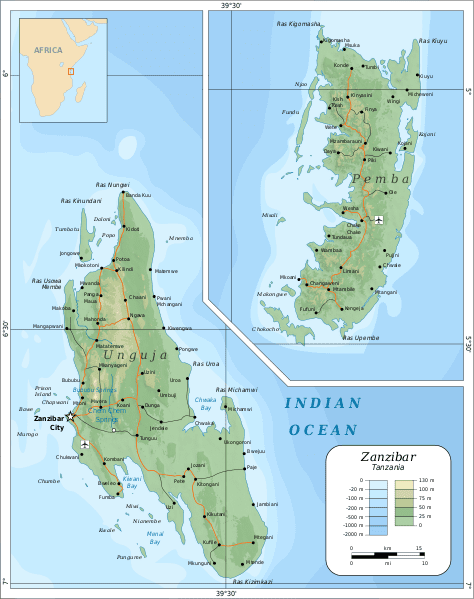
To properly appreciate the story, however, a little background is required before launching into details of the war itself.
Welcome to Zanzibar
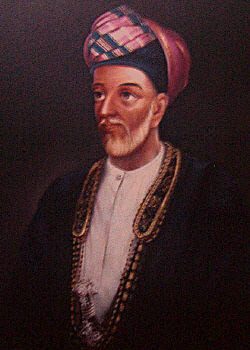
A low-lying island off of the coast of East Africa around 600 square miles (1,554 km2) in size, dotted with coconuts and lush with clove and other sought-after spices, Zanzibar has a very colorful history. Once a part of Oman, “the spice island” of Zanzibar became its own territory when Said bin Sultan Al-Said, the last ruler of the united Omani Empire, passed away in 1856. Two of the older sons, Majid and Thuwaini, had been contesting who would succeed him, with the result being that Thuwaini would be the Sultan of Oman and Muscat, whereas Majid would be Sultan of Zanzibar.
Though this outcome was bending tradition a bit (as typically the eldest son gets everything) and Germany and Britain disliked the idea (as Zanzibar was part of a major trade route), it was what was agreed and it’s where this story about the shortest war in history begins.
The succession of sultans

After Majid became the first Sultan of now-solo Zanzibar, he ruled for about three years before one of his brothers, Barghash bin Said Al-Busaid, tried to usurp him… and failed. This sort of thing is to be expected when it comes to succession, and with Barghash being noble and all, rather than a nasty execution, Barghash was instead banished to Bombay for two years to “cool off a little.” Majid would continue to rule (perhaps a bit more smugly) until he died in 1870 at the suspicious young age of 35 or 36. As Majid had only a daughter, the next successor just happened to be his brother Barghash.
Barghash turned out to be a fine sultan, building up Zanzibar’s infrastructure with such installations as telegraph poles, piped water, roads, and practically all of the famous Stone Town. He even signed an agreement with the British the same year of his ascension (not suspicious at all) prohibiting the slave trade in Zanzibar, and though slave labor (over 40,000 people) were still used in cultivating coconuts, cloves, and more, the agreement was a fine start towards eventual abolition (so we can easily forgive that one little usurpation attempt).
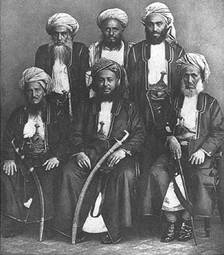
He also had one of his brothers, Khalifah bin Said of Zanzibar, imprisoned for a coup attempt. With no evidence provided (the benefits of being a sultan), Barghash let that brother languish in jail for three years until their sister Salama bint Said (later known as Emily Ruete) made a pilgrimage to Mecca and threatened to curse Barghash’s name in the holy city.
Barghash released his brother but kept a close watch on him. His cleverness apparently served him well, as he died at the much-less-suspicious age of 51 in 1888. Though he had a son named Khaled, Barghash’s brother Khalifah became the third sultan of Zanzibar instead.
Tough luck, Khaled.
Zanzibar becomes a British protectorate
Fast-forward to 1890. We find that poor Khalifah has just died of a fever at the ripe old age of… well, 36. This is the same year that the German Empire and Great Britain, tired of fighting over various strategic bits of Africa, signed the Heligoland–Zanzibar Treaty. This treaty covered various bits of land, but briefly, the German Empire got the island of Heligoland and Great Britain got Zanzibar. Thus, Zanzibar officially became a British protectorate.
Read more: The Bob Semple Tank: Worst Tank Ever
Protectorate status meant sultans were still allowed to rule (though with reduced power) and that succession may proceed only with British approval of the successor. This arrangement was great for Britain and offered a little protection for Zanzibar from other countries that might want that fine trade location and its cloves for themselves, though perhaps not as much fun from the sultan’s perspectives.
The fourth “new and approved” sultan—Ali bin Said Al-Busaid—was installed. He would rule for three years before dropping dead at 46 and being replaced by the fifth sultan of Zanzibar, his nephew Hamad bin Thuwaini Al-Busaid.
At this point, a rather incensed and apparently forgotten Khaled (Barghash’s son) attempted to seize the palace, but now that Zanzibar was a protectorate that was a dangerous decision. Khaled was convinced to go back home where he waited, hating on the British for the next three years.
Shortest war in history began when the “wrong” sultan succeeded
To the surprise of absolutely no one (except perhaps the sultan himself), Hamad died suddenly at 11:40 a.m. on August 25, 1896. He was around 38 years old, and though it can’t be confirmed that Khaled actually poisoned him, someone certainly noted his exact time of death. Just saying.
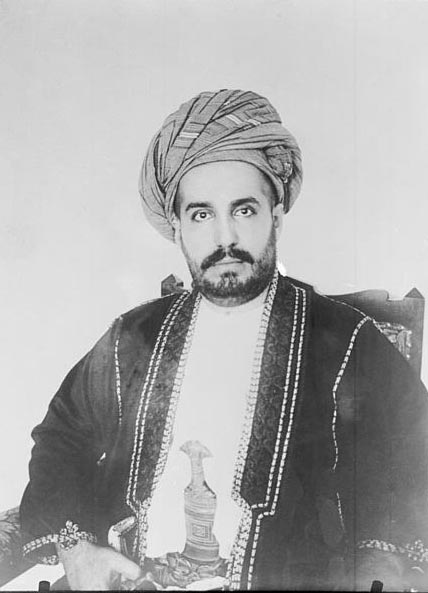
Khaled bin Barghash just happened to be nearby and immediately called dibs, proclaiming himself the sixth sultan of Zanzibar. British diplomats who were present in court became understandably alarmed and the chief diplomat, Basil Cave, stepped up to sort things out.
The order that heralded the shortest war in history

The chief ambassador, undaunted, demanded that the unapproved sultan step down. When he instead put out the call to assemble his forces, Cave took some action of his own. He knew that two warships, the HMS Rush and the HMS Philomel were already in the harbor, but he also knew that a big message needed to be sent. He immediately requested the nearby HMS Sparrow to come in to support the first two ships and sent a telegram asking for permission to take action if no peaceful alternatives could be found. While he awaited a reply, two more warships arrived in the harbor. They were the HMS St. George and the HMS Raccoon. He also received the reply that he had the full support of Her Majesty’s Government to do what he felt was necessary, provided that he not “attempt to take any action which you are not certain of being able to accomplish successfully.”
Cave again asked Khaled to step down, advising him that he had until 9 a.m. on August 27 to abdicate or to suffer the consequences. Khaled simply ignored him, which led to the shortest war in history.
You wouldn’t shoot a sultan, would you?
His stubborn nature bolstered by the lively last two days of living as a sultan, Khaled waited until 8:00 a.m. on August 27 to finally deliver a message. He stated simply that he had no intention of lowering his flag and that “we do not believe you would open fire on us.”
Cave, ever the formal British Ambassador, sent a polite reply stating that open-firing was not his desire, but that the Royal Navy “shall certainly do so” if Khaled continued to refuse to step down.
Khaled had nothing to else to say. He was sticking to his guns in his belief that the British wouldn’t fire on him, perhaps while confidently eating a delicious breakfast of vitumbua, coconut rice pancakes still popular in the region.
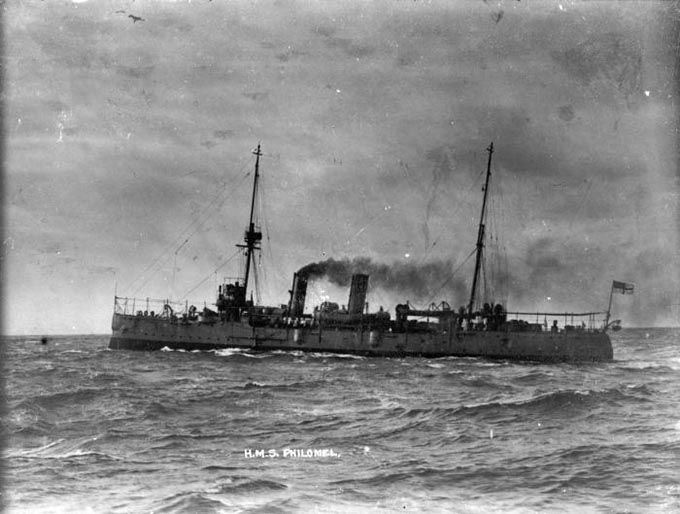
How long was the shortest war in history?
At 9:00 a.m. sharp, the British Royal Navy showed him a thing or two about sticking to one’s guns and five warships began hurling thunder from the harbor. Their cannons had already been optimally positioned and loaded, focusing a major amount of firepower on a specific corner of the palace.
By 9:02 a.m., the Royal Navy and their heavy-metal rain had destroyed most of Khalid’s artillery, and the palace itself was in danger of collapsing on the 3,000 defenders inside.
At approximately the same time, Khalid bin Barghash made for the back doors of the palace, leaving behind his soldiers and servants and hiding out at the German consulate. By sometime around 9:40 a.m., more than 500 of Khalid’s men had been killed or severely wounded. His flag was quickly lowered and replaced. With a duration of around 38 minutes the shortest war in history was officially over.
The British-favored Hamoud bin Mohammed became the new sultan and even earned a knighthood from Queen Victoria for abolishing slavery in Zanzibar in April of 1897. He reigned until July 18, 1902 (approximately 2,147 days longer than Sultan Barghash) and was succeeded by the eldest of his ten sons—Ali bin Hamud—with full British approval.
Whatever happened to Khaled?
The three-day sultan and loser of the shortest war in history, Khaled bin Barghash, fled successfully to his German consulate contacts. They were able to smuggle him into the territories of German East Africa and gave a deaf ear to all British demands of extradition.
The British would catch up with Khaled again, however, 20 years later in Dar es Salaam.
His royal status most likely saved him one last time, as he was not executed but exiled. And after enough “good behavior” in St. Helena and Seychelles, he was given permission to relocate where he might like in East Africa.
Khaled bin Barghash died in Mombasa at around 52 years of age.

